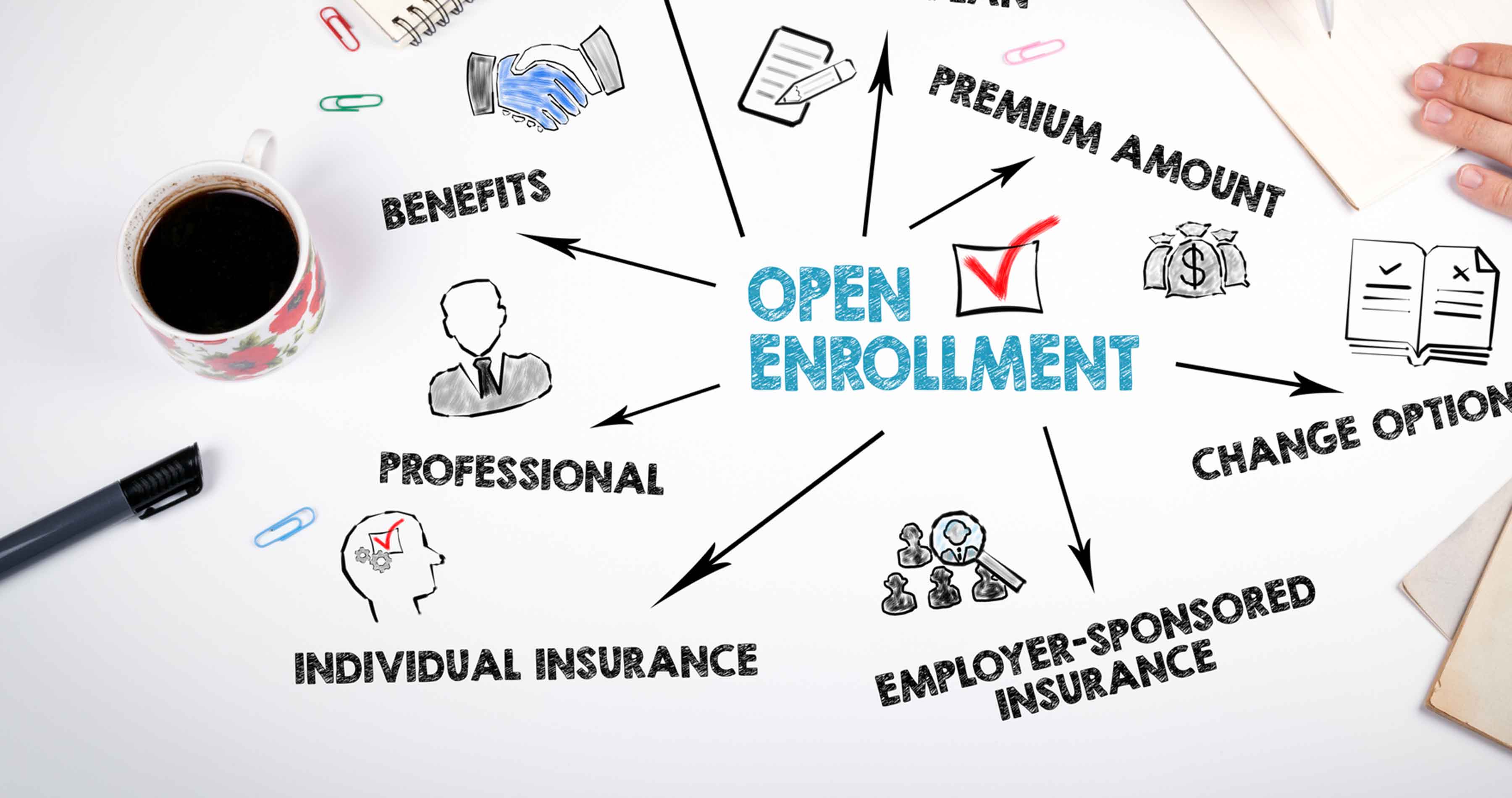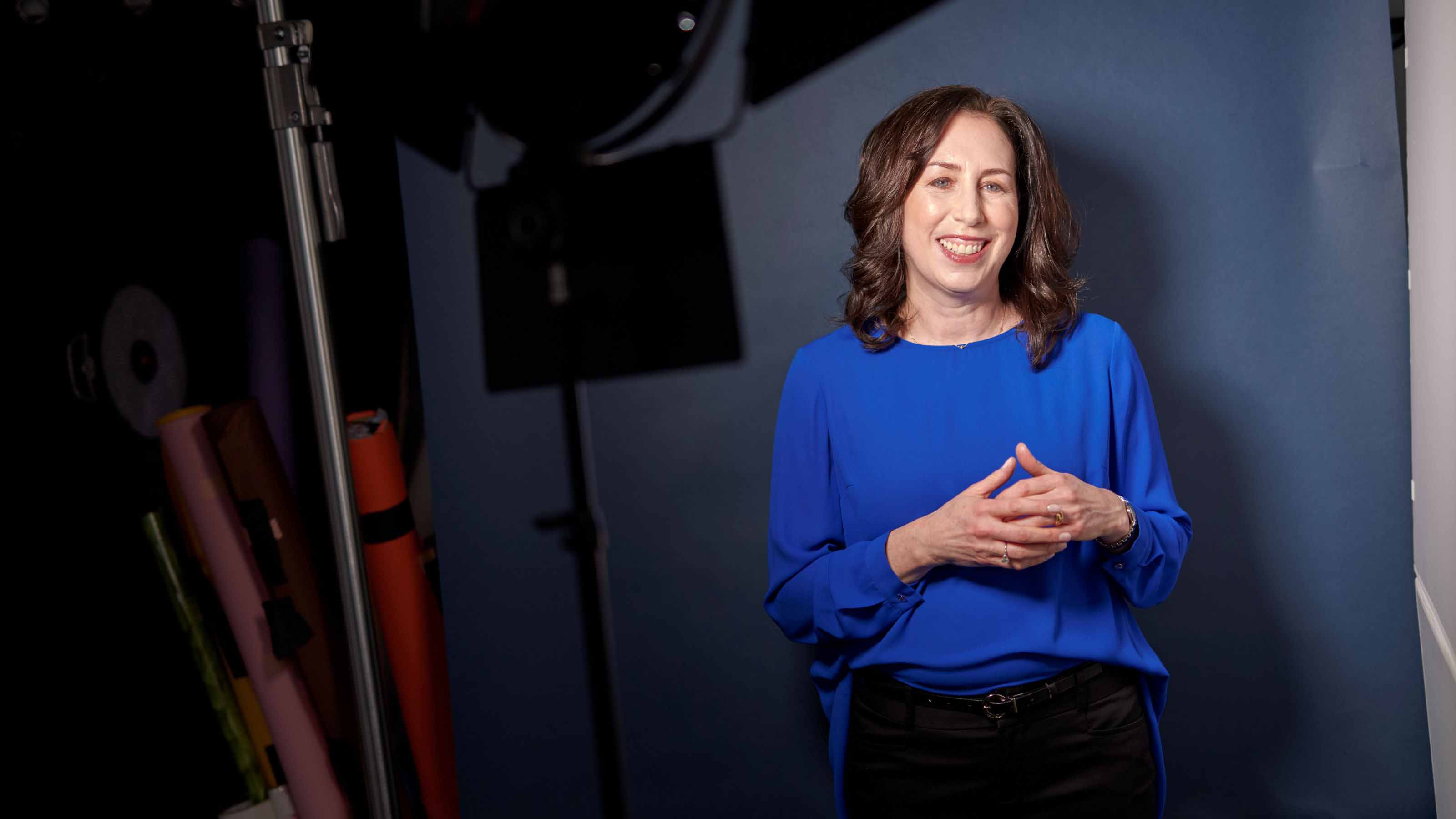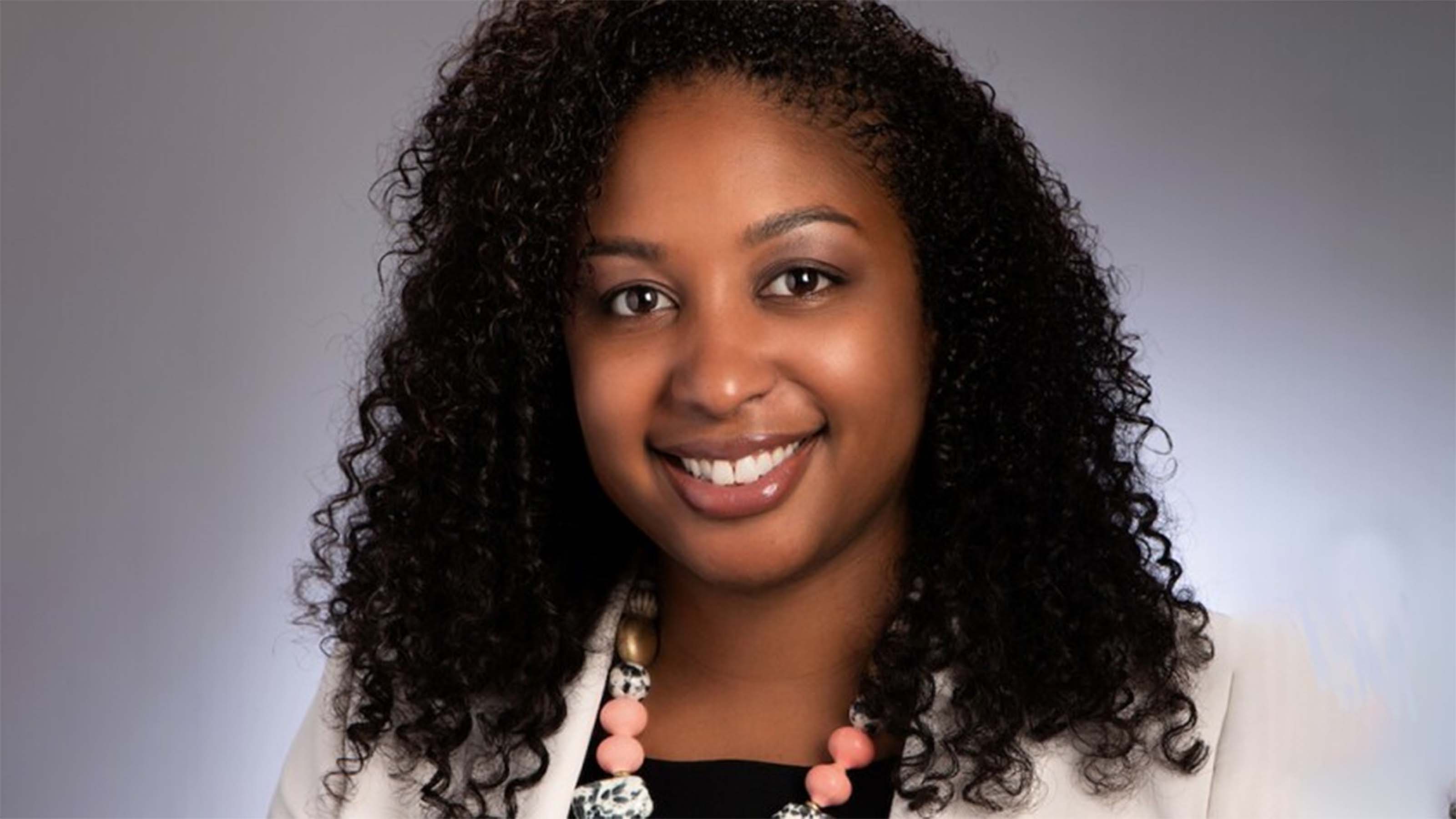PODCAST: Making Wise Choices During Open Enrollment
Contributing Editor Lisa Gerstner runs through the new variables of the 2020 open enrollment season. Also, hosts Sandy Block and David Muhlbaum talk about how the stock market handles election results, as well as what the upcoming ski season will look like.

Profit and prosper with the best of Kiplinger's advice on investing, taxes, retirement, personal finance and much more. Delivered daily. Enter your email in the box and click Sign Me Up.
You are now subscribed
Your newsletter sign-up was successful
Want to add more newsletters?

Delivered daily
Kiplinger Today
Profit and prosper with the best of Kiplinger's advice on investing, taxes, retirement, personal finance and much more delivered daily. Smart money moves start here.

Sent five days a week
Kiplinger A Step Ahead
Get practical help to make better financial decisions in your everyday life, from spending to savings on top deals.

Delivered daily
Kiplinger Closing Bell
Get today's biggest financial and investing headlines delivered to your inbox every day the U.S. stock market is open.

Sent twice a week
Kiplinger Adviser Intel
Financial pros across the country share best practices and fresh tactics to preserve and grow your wealth.

Delivered weekly
Kiplinger Tax Tips
Trim your federal and state tax bills with practical tax-planning and tax-cutting strategies.

Sent twice a week
Kiplinger Retirement Tips
Your twice-a-week guide to planning and enjoying a financially secure and richly rewarding retirement

Sent bimonthly.
Kiplinger Adviser Angle
Insights for advisers, wealth managers and other financial professionals.

Sent twice a week
Kiplinger Investing Weekly
Your twice-a-week roundup of promising stocks, funds, companies and industries you should consider, ones you should avoid, and why.

Sent weekly for six weeks
Kiplinger Invest for Retirement
Your step-by-step six-part series on how to invest for retirement, from devising a successful strategy to exactly which investments to choose.
David Muhlbaum: It's time for an annual process about as important as your regular physical, and related, too. We're going to talk about open enrollment for health care benefits. What's new, what's different, what's exciting on the insurance front. Sandy and I will also talk about how the stock market is handling the election results, as well as the upcoming ski season. That's all ahead on this episode of Your Money's Worth. Stick around.
- Episode Length: 00:23:17
- Listen to previous Your Money's Worth episodes
- SUBSCRIBE: Apple Google Play Spotify Overcast RSS
David Muhlbaum: Welcome to Your Money's Worth. I'm kiplinger.com senior editor David Muhlbaum, joined by senior editor Sandy Block. Sandy, how are you?
Sandy Block: I'm good. I'm good, David.
From just $107.88 $24.99 for Kiplinger Personal Finance
Become a smarter, better informed investor. Subscribe from just $107.88 $24.99, plus get up to 4 Special Issues

Sign up for Kiplinger’s Free Newsletters
Profit and prosper with the best of expert advice on investing, taxes, retirement, personal finance and more - straight to your e-mail.
Profit and prosper with the best of expert advice - straight to your e-mail.
David Muhlbaum: Good. Well, last week we kind of ducked talking about....
Sandy Block:Yes, we did.
David Muhlbaum: ... the 2020 election. That was because we didn't know the results of the presidential election as well as a number of other races. But now we know. Pretty much.
Sandy Block: Yeah. Not everyone agrees that Joe Biden is going to be the next president of the United States. One noteworthy exception being his predecessor and opponent in the race, the current president.
David Muhlbaum: Yeah. Yeah. It's quite something. However, it does seem like a pretty big constituency in the United States has concluded that Joe Biden will take office for sure in January. I'm not talking about the voters, I'm talking about the stock market. I mean, I know the market didn't vote for one candidate or the other., and it's highly debatable which one it preferred, but Mr. Market seems to like the outcome.
Sandy Block: Yeah. Mr. Market likes clear outcomes. Mr. Market does not like uncertainty. And the strong performance of the stock market in the last week is, to some extent, a verdict on the election that says we have a known president-elect, a Democrat, and we have the likelihood of continued Republican control of the Senate. That may not make you happy if you're on either side, but divided government is something that the markets have typically liked very much.
David Muhlbaum: Well, one person's divided government is another person's gridlock, though.
Sandy Block: Yeah. Definitions. But I'll quote, buzzwords and all, from Canaccord Genuity equity strategist Tony Dwyer. I can't say that more than one time! This is what he said. "The election outcome has likely neutralized the far left and far right tail risk of the political spectrum, which could allow a more centrist view instead of policy initiatives," he says. "The results suggest there is no major mandate or majority that would go right to work on big policy changes. That means investors can, again, focus on the most powerful influence in the market, historically accommodative fed and global central banks."
David Muhlbaum: So in the first part, I hear gridlock, but in that last phrase, I hear continued low interest rates. And traditionally, that helps equities.
Sandy Block: That's right. Continued low interest rates are zero, in fact, for short-term rates, which are the ones that central banks can directly control. The long rate situation is different in part because of another big bit of news from last week, the promise of an effective coronavirus vaccine.
David Muhlbaum: Yeah. Right. From Pfizer. Well, obviously, Pfizer stock had a jump on that, but … long rates?
Sandy Block: Yeah. David Payne, our staff economist just updated his forecast. If the vaccines from Pfizer and others are effective in practice, he says the 10-year rate will likely rise at least another half a percentage point in 2021.
David Muhlbaum: Okay. And to put that into direct how-interest-rates-matter-to-you-perspective, what's that going to do to mortgage rates? Because I have yet to refinance. Mostly because I'm administratively lazy.
Sandy Block: Or because you work so hard here, David. But David Payne's forecast, which we'll link in the show notes, is for them to rise somewhat. But that's from literally an all time low. Last week, the 30 year fixed rate hit its lowest point since the Freddie Mac rate survey began in 1971, 2.78%. And it was up a bit this week, but not much.
David Muhlbaum: So I might pay a smidge more in the next weeks if I refinance, but I'll probably hardly notice it among all the fees and recordation taxes and whatnot. That garbage is part of what keeps me from refinancing. Even though I know I'll probably save money at the end of the day, it just galls me.
Sandy Block: Yeah, but nobody likes fees and nobody likes taxes either, but they're the price of living in a civilized society, if that's what we call this.
David Muhlbaum: Definitions again. All right. Well, when we come back for our main segment, it's that time again, open enrollment. Our health insurance expert, Lisa Gerstner, tells us what you can expect for 2021.
David Muhlbaum: For our main segment today, we're joined by Lisa Gerstner, a contributing editor for Kiplinger's personal finance magazine, and someone who knows a lot about a lot. In this case, healthcare coverage. And the reason she's here this week is because we are in the thick of open enrollment season, the time in which employees and others have the opportunity to make changes to their health care coverage. Welcome, Lisa.
Lisa Gerstner: Thanks for having me back.
David Muhlbaum: Yeah, well, okay. So healthcare is a big sprawling topic because in part everyone needs it or should have it. So in order to keep us down to a reasonable time, let me just say right off the bat that we're not going to talk about Medicare. And my apologies if that is where you get your coverage. But before you punch out totally, please go down to the show notes and see the links we've included. They've got information about this year's Medicare enrollment.
Sandy Block: And don't go, we love you. And we're going to talk about skiing later. That'll be fun.
David Muhlbaum: Yeah. Plus what if you fall down and break your leg skiing? Then you'll need coverage.
Sandy Block: Don't jinx yourself, my man.
David Muhlbaum: Right. No falling. Okay, Lisa, another way of shaping our conversation today, so open enrollment is a thing for employees -- and that's how you start out your article this year. But it's also a process for people who are getting coverage in the individual marketplace. And frankly, I'm thinking about people who in, as I like to call it, our blessed year 2020, have lost their jobs and their healthcare coverage as a result. And they have had to scramble. So they may have already signed up for new coverage only a few months ago. What do they have to do now?
Lisa Gerstner: Yeah. So I think it's important that even if you signed up for 2020 insurance in the individual market pretty recently because you lost your job, you'll want to go back in there, review your options, and just make any changes if you need to for your 2021 plan. For healthcare.gov, open enrollment is from November 1st through December 15th. So you still have a little time, a few more weeks to get that in. And I would say, even if you want to keep the same plan for next year and just let it renew, it's still a good idea to go in there and you'll update your income and your hospital information. Just make sure everything's really squared away for 2021 for that plan.
David Muhlbaum: It's going to be easier this time now, right?
Lisa Gerstner: Yeah. Yeah. It should be a little easier. You should already have an account. You just have to go in, and if you want to change something, you can do that. If not, just roll with it. But yeah, even if you're new to this whole process, it's pretty simple. You just go to healthcare.gov. You click on a link to apply for insurance. And then you pick your state. And then from there, you'll either be directed to your state's marketplace that has one, or you'll go through healthcare.gov directly to the federal website if not.
David Muhlbaum: Can you give us a quick primer on that subsidy portion of the Affordable Care Act? Now, this is one of those things that might have seemed like a political abstraction to people, the free Obamacare or whatever, and now that's something they actually want to and need to use. So, a little more about how it works.
Lisa Gerstner: Yeah. That subsidy's kind of a big deal because if your income is below certain levels, you'll qualify for a tax credit that reduces the premium you're going to pay on the health insurance plan. So essentially, if you have lost your job recently, your income is a lot lower than it used to be, you may well qualify now for a subsidy, and then maybe you wouldn't have in the past. So that's definitely something to keep in mind as you're enrolling.
David Muhlbaum: And the subsidy, you feel that right away when you enroll, right? It's not like when you file your taxes. This comes off right from the get-go.
Lisa Gerstner: Yeah, it should reduce your premium. You have to estimate what your income's going to be for the year. If that ends up being a little off, then that'll be reflected later when you file your tax return is how that works. So give it your best estimate. If your income ends up changing next year, you will want to go back in and update that information just so everything's as even as it can be later. So yeah, that's a good point.
Sandy Block: So Lisa, let's go back to people who managed to hang on to their jobs and their healthcare benefits this year. What's the biggest change they're going to see in their options. Obviously, this is going to depend on your individual plan, but maybe you could talk about some broad trends you're seeing.
Lisa Gerstner: So the big trend lately we're seeing has been that employers are actually reintroducing more types of plans for employees to choose from. And that's good news for employees. More choice is better. A few years ago, the trend was that employers were actually only offering high deductible health plans with health savings accounts. That was the only choice you had. So that can be a cost effective option if you're healthy and you don't use much healthcare because the premiums tend to be lower with those plans.
Lisa Gerstner: But especially if you do have health conditions, and you're seeing a lot of specialists, that's not necessarily the best option for you. So sometimes you're just going through and considering your plans. That high deductible, again, may be a good option if you're pretty healthy, you're not using a lot of health services. But another option you might see on your menu of health benefits is that standard preferred provider organization, or PPO plan. So compared with the high deductible plan, PPOs typically come with a lower deductible, but a higher monthly premium. So if you do fall into that category where you're using a lot of healthcare, a PPO could be the better choice for you. PPOs also tend to cover even out of network here to some degree, although that coverage is not going to be as robust as it is within network here.
David Muhlbaum: Do the plans offer -- or are there independent locations -- where essentially you can calculate the costs to see which one would be better for you?
Lisa Gerstner: Yeah. So especially if you're an employer, it's a lot to consider. And they'll often offer you resources just to help you compare your options. There might be online calculators that help you compare your premiums and your out-of-pocket costs. So you might be able to call a consultant to help you out. So I think that's really well worth taking advantage of because there are just so many numbers and so many little factors that you have to consider.
David Muhlbaum: Yeah. But whether the doctors in the plan are participants, it's not easy.
Lisa Gerstner: Yes, exactly. And you can often go online and it'll show you, okay, here's my zip code. And here are some doctors that are within network or at least with my insurance. I know how that works. So another common plan type that you might see on your health insurance menu benefits is health maintenance organization, or HMO plan. And so compared with a PPO, you're probably going to see a lower premium and deductible. So that's always nice. But your care options are more limited usually. Out of network here is either not covered or it's very minimally covered. And you may have to get referrals from your primary care doctor to get coverage for a specialist. That's what I have to do now if I want to see anyone else besides my primary care doctor. In many situations, I have to have to go to her and get that referral. So it's an extra step you have to take.
David Muhlbaum: And that doctor, your primary care, is in your HMO?
Lisa Gerstner: Right.
David Muhlbaum:Has to be.
Lisa Gerstner: That should be a doctor within your network.
David Muhlbaum: Right. So another couple of alphabet soup items, we might as well get into HSA and FSA. Health savings account, flexible spending account. They're similar, but different. Is one better than the other? And first of course, tell us what the difference is?
Lisa Gerstner: Right. Yeah. So the health savings account or HSA, it really has some more long-term advantages. The money is yours to use forever. There's no limit on it. So that's really the big difference between an HSA and a flexible spending account, or FSA. With that flexible spending account, you either have until the end of your plan year, or if you have a grace period that your employer offers you, you have until March of the following year. So HSAs have really been come to seen as even a great retirement savings vehicle. I've talked to more and more financial planners who say, "Hey, this is the really the best option you have because not only can you use that money at any time, but it also has a triple tax benefit."
Lisa Gerstner: So, you can make contributions pre-tax, or tax deductible,if it's not through an employer. The contributions can grow tax deferred through investments in the account, which is kind of another nice perk. And then you can withdraw that money tax free for qualified out-of-pocket medical expenses. And that could be anything from doctor visits to eyeglasses. And now, thanks to a change in the law, you can even get pain relievers without a prescription and other over the counter meds. So really just a lot of nice advantages to that HSA.
David Muhlbaum: This year, we got a relatively significant change too in terms of what you can charge to either an HSA or an FSA. Can you tell us a little bit more about that?
Lisa Gerstner: So, in response to kind of the coronavirus crisis, the CARES Act passed some new rules about what you can use your HSA or your FSA money for. So a big one is over the counter medications without a prescription. So pain relievers, antihistamines, cough suppressant all of that stuff you can now use that money for without worrying about a prescription.
Sandy Block: So Lisa, some employer plans also offer vision and dental coverage for an added premium. Are they worth the cost?
Lisa Gerstner: Yeah. I think you really have to take a look at what you would spend on the premiums and the out of pocket cost if you get that dental or vision plan, and then compare that with what you would expect to spend if you have to pay full freight for your eyeglasses or for dental procedures and things like that. When it comes to the vision plan, if no one in your family is wearing glasses or contacts, or if you don't upgrade your glasses very often like me, you can probably get away without that extra insurance. It might cost you more than it's worth. On the other hand, if you have a whole family of glasses wearers, and y'all like to update your glasses every year, it might be worthwhile. So you really just have to run the numbers on that.
David Muhlbaum: I think in terms of running the numbers, speaking as someone who has had glasses, it behooves you to go to whoever you think is going to actually build the glasses for you, and see how their cost structure is going to fit with your insurance. Because there are times where your optician will essentially say, "Ah, we'll do it this way." And essentially whatever discounts they can offer will sometimes beat your vision coverage. So that's still a decision you can make when it comes time to buy. But it's something to keep in mind or to essentially pre-shop, if you're paying out of pocket for your optical care. And I would mention that one of our favorite retailers around here, Costco, does often have an optical department.
Lisa Gerstner: That's right. And especially you mentioned discounts, I recently bought a pair of eyeglasses. And I didn't even know it when I went in, I don't have the insurance that covers the frames and the glasses, but they gave me a 30% discount for being a military spouse. So make sure you check into those options.
Sandy Block: Lisa, in your article, you also talked about the pros and cons of dental coverage. And I often get asked about this by parents. And I know you're a parent, but this isn't your problem yet, but will be someday. What if your kid needs braces? It's worth getting dental coverage for that.
Lisa Gerstner: That's another big point. Check what's covered in your core medical policy. Because often pediatric dental and vision are included in there. So you may not need any additional coverage for your kids. Definitely check over what's in your basic medical policy also before you jump into that.
David Muhlbaum: As someone whose kids have gone through this, orthodontic care and dental can be two different animals. And once again, you really need to look at the details because-
Lisa Gerstner: Yeah, whether it's medically necessary for braces and those things all can be rules that come into play.
David Muhlbaum: Right. Since we talked about the Affordable Care Act, I think we should note that it, yet again, was up in front of the Supreme Court this week, which focuses attention on its future. And one of the things I just want to check in on is -- is there any relevance to expected upcoming Supreme Court hearings, rulings, whatever on Obamacare, and current open enrollment?
Lisa Gerstner: You don't have anything to worry about right now. We're not likely going to hear a verdict on that case until next June. Even then, it's pretty likely they're going to uphold most of the Affordable Care Act. There may be certain parts of it that are changed. But yeah, at least for the moment, I wouldn't worry about it. Just proceed as normal. Pick the plan as you normally would. We'll cross that bridge when we get there.
David Muhlbaum: And even if a ruling invalidated certain parts, that would come back into play at next open enrollment, right? You'd still be able to roll through.
Lisa Gerstner: Yeah, I would hope that they would make it so that people's plans just aren't blown apart right in the middle of the year.
Sandy Block: I think it's very likely anything would be retroactive. That's hard for me to imagine.
David Muhlbaum: Right. Okay. Well that we can tackle next year. Thanks very much, Lisa, for helping us tackle this year. Good luck filling out your forms.
David Muhlbaum:
When we return, our forecast on what the upcoming ski season will look like. We're not even going to get to snow. Too many other concerns.
David Muhlbaum: So you know what a much younger David would have been doing this time of year?
Sandy Block: I'm guessing not planning your Thanksgiving meals.
David Muhlbaum: No, no. I don't even do that now, other than make the squash. That's my dish. But no, I spent my teenage Novembers moping around waiting for it to snow so I could go skiing. I mean, I'd do some productive things, like tune, wax my skis. You can only do that so many times. And some less productive things like hanging around the local ski shop, collecting paper brochures for all the ski areas. I could tell you the vertical drop of pretty much every East Coast ski area.
Sandy Block: And now?
David Muhlbaum: Well, I can still tell you the vertical drop.
Sandy Block: That hasn't changed.
David Muhlbaum: No, the mountains don't change. I mean, sometimes they run the lift a little higher or lower, but not much. But I am again wondering what kind of ski season, if any, we're going to have this year. Because skiing, at least in the Northern Hemisphere where it's dominant, is one of the few industries to really be tested by COVID. The pandemic took hold at the end of the last winter season, but it wasn't all that hard for resorts to turn off the lifts and turn out the lights a little early then because they've already booked almost all their revenue. And often the seasonal staff is running off to the next gig. But now there's another one coming up. And they need to sell passes, they need to fill rooms, and need to sell hot cocoa and private lessons. And that's going to be a big challenge.
Sandy Block: Well, I could flip this around and say, yeah, but they've had much more time to prepare than a beach resort. And skiing is outside. And also people are already wearing face masks on the slopes, right, I think, in those pictures.
David Muhlbaum: Yeah, no. Yeah. No, in fact I have a face mask. But anyway, you're right. But I've got two words for you: lift lines. I mean, you think you hated waiting your turn for the chair before? Now imagine doing it in a big crowd of people, huffing and puffing because they've just come down Lower Knee Breaker or whatever.
Sandy Block: Yeah, I see that. And the lodge, of course, is an indoor space with all the concerns that come with that. Plus given that it's a snow sport and it tends to be cold, which makes people want to come inside. In fact, to me, that's the only reason to go skiing is so you can go inside and sit by the fire and drink hot cocoa.
David Muhlbaum: Or have an Irish coffee at the bar. Right. And as with many entertainment industries, that's where the big profit margins are.
Sandy Block: So bring a flask or thermos, right?
David Muhlbaum: Now, that's what some of us cheapskates were doing all long.
Sandy Block: Thrifty. Very Kiplinger. But the end of the day, actually at the start of it, the main thing a ski area is selling you is a lift ticket, a pass to get up top so that you can come down again, hopefully intact. So are they selling tickets?
David Muhlbaum: Well, in short, yes. The two big North American ski pass companies, Ikon and Epic, they're full speed ahead with pass sales. But significantly, they've built in contingencies and refund options in case resorts get closed, or you have a problem. Basically these are travel insurance products. They existed before, but they're more generous now, and they're COVID aware. They get that people are wary.
Sandy Block: It sounds a lot like what the airlines are doing when you book a flight.
David Muhlbaum: Yeah. I mean, the ski industry has kind of been trending that way for years. It's all advanced sales and passes and whatnot, even at small resorts. So the one-day pass, the walk-up price for a lift ticket, the rack rate, if you will, is crazy high. So you have to buy ahead, and hope that the snow will be good for the day you reserve.
Sandy Block: So does any of that help with the lift line of doom scenario you were talking about?
David Muhlbaum: Well, sort of. Many areas are planning to limit capacity for that very reason, with other restrictions too. And some will require reservations. So you're not even going to walk up to the window and pay God knows what. If you buy the Epic pass, that gets you better placement for reservation at their resorts. It's now starting to sound like Disney World.
Sandy Block: So, big question. Are you going to buy a big pass?
David Muhlbaum: No. I am going to spring the small bucks for something called the Indy Pass. So, a bunch of smaller resorts have gotten together for this more limited offering, but it's $200. Remember: thrifty.
Sandy Block: Yeah. This sounds like a story we should be writing about in Kiplinger's. I hope you get to use it.
David Muhlbaum:Thanks. Me too. And that will just about do it for this episode of Your Money's Worth. I hope you enjoyed it. And I hope you'll sign up for more, if you haven't already, wherever you get your podcasts. When you do, or even if you already have, please give us a rating on those platforms. We've mentioned some links and content in our show. To see them, and for more great Kiplinger content on the topics we discussed on today's show, visit kiplinger.com/podcast. There are transcripts there as well. And if you're still listening, because you want to give us a piece of your mind, you can stay connected with us on Twitter, Facebook, or by emailing us at podcast@kiplinger.com. Thanks for listening.
Links and resources mentioned in this episode:
Profit and prosper with the best of Kiplinger's advice on investing, taxes, retirement, personal finance and much more. Delivered daily. Enter your email in the box and click Sign Me Up.

In his former role as Senior Online Editor, David edited and wrote a wide range of content for Kiplinger.com. With more than 20 years of experience with Kiplinger, David worked on numerous Kiplinger publications, including The Kiplinger Letter and Kiplinger’s Personal Finance magazine. He co-hosted Your Money's Worth, Kiplinger's podcast and helped develop the Economic Forecasts feature.
-
 How Much It Costs to Host a Super Bowl Party in 2026
How Much It Costs to Host a Super Bowl Party in 2026Hosting a Super Bowl party in 2026 could cost you. Here's a breakdown of food, drink and entertainment costs — plus ways to save.
-
 3 Reasons to Use a 5-Year CD As You Approach Retirement
3 Reasons to Use a 5-Year CD As You Approach RetirementA five-year CD can help you reach other milestones as you approach retirement.
-
 Your Adult Kids Are Doing Fine. Is It Time To Spend Some of Their Inheritance?
Your Adult Kids Are Doing Fine. Is It Time To Spend Some of Their Inheritance?If your kids are successful, do they need an inheritance? Ask yourself these four questions before passing down another dollar.
-
 PODCAST: Tax Breaks for College Finance with Kalman Chany
PODCAST: Tax Breaks for College Finance with Kalman ChanyPaying for College Paying for (ever-pricier) college is a challenge that this consultant meets head on with highly specific guidance.
-
 PODCAST: Car-Buying in an Inflated Market with Jenni Newman
PODCAST: Car-Buying in an Inflated Market with Jenni NewmanBuying & Leasing a Car With cars both scarce and expensive these days, what to do if you want – or need – a new ride? Car-buying strategist Jenni Newman of Cars.com shares some tips. Also, more on the magical 9% savings bond.
-
 PODCAST: How to Find a Job After Graduation, with Beth Hendler-Grunt
PODCAST: How to Find a Job After Graduation, with Beth Hendler-GruntStarting Out: New Grads and Young Professionals Today’s successful job applicants need to know how to ace the virtual interview and be prepared to do good old-fashioned research and networking. Also, gas prices are high, but try a little global perspective.
-
 PODCAST: Is a Recession Coming?
PODCAST: Is a Recession Coming?Smart Buying With a lot of recession talk out there, we might just talk ourselves into one. We take that risk with Jim Patterson of The Kiplinger Letter. Also, dollar stores: deal or no deal?
-
 PODCAST: This Couple Tackles Love and Money as a Team
PODCAST: This Couple Tackles Love and Money as a TeamGetting Married Fyooz Financial, the husband and wife team of Dan and Natalie Slagle, have carved out a niche advising other couples with the money questions that come with pairing up. Also, where is this troubled stock market headed?
-
 PODCAST: Which Documents to Keep, Which to Shred and Which to Scan
PODCAST: Which Documents to Keep, Which to Shred and Which to Scanhome insurance A speedy recovery from disaster can depend on your recordkeeping. Kiplinger’s Personal Finance writer Rivan Stinson tells us how to get our papers in order.
-
 PODCAST: High Gas Prices with The Kiplinger Letter’s Jim Patterson
PODCAST: High Gas Prices with The Kiplinger Letter’s Jim Pattersoncars Why are we paying so much more at the pump? How long will it last? What can you do? Plus: Congress is making changes to retirement-savings rules again.
-
 PODCAST: The Future of Certified Financial Planners with Kamila Elliott
PODCAST: The Future of Certified Financial Planners with Kamila ElliottBecoming an Investor CFPs will tell you (and we’d agree) that not all financial advice is the same. We talk with the chair of the CFP Board about what she’s doing to preserve her organization’s brand and extend its reach. Also, the right way to file your tax returns for free.

